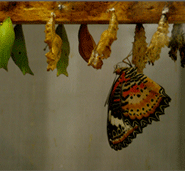I spoke to Sheba Karim who is currently working on a historical fiction novel about the life of Razia Sultan, graciously responded to some of these ruminations on fact, fiction and history.
- ‘The only duty we owe to history is to rewrite it.’ -Oscar Wilde
In writing historical fiction, one’s duty is less to history than to narrative. I would temper Wilde’s statement, though, by saying you have to have some broad commitment to historical accuracy. If the state won a war, but you write it as a rebel victory, then you’re entering the realm of alternate history. But, as a fiction writer, the question of how committed one must be to historical accuracy is an interesting one; for example, I have a scene with the Sufi saint Qutb’uddin Kaki that takes place when Razia is sultan—but that Kaki died before she took the throne. So this scene is a total historical fabrication, but it makes for an interesting narrative, and so the latter trumps the former.
- ‘Whoever turns biographer commits himself to lies, to concealment, to hypocrisy, to embellishments, and even to dissembling.’ -Sigmund Freud
I’d be curious to know if anyone, upon reading his or her own biography, found it completely on point. Any biography is a curation of a person’s life, its events, conflicts and epiphanies carefully selected and arranged by the biographer. But I think readers approach biography well aware that the whole truth of someone’s life cannot be contained within a book.
- 'Truth is stranger than fiction, but it is because Fiction is obliged to stick to possibilities; Truth isn't'. -Mark Twain
In my research for Razia, the ‘truth is stranger than fiction’ adage often comes to mind. There was a lot of madness in medieval India! Recently, in Wendy Doniger’s Hindus: An Alternate History, I read that Ala’uddin Khalji’s son was best known for “parading a line of naked prostitutes on the terraces of royal palaces and making them pee on the nobles as they entered below.” Seriously, you can’t make some of this stuff up.
Truth, of course, is never limited by possibilities. If something is ‘true,’ then people immediately suspend disbelief—if it’s actually happened, what is there not to believe? Meanwhile, fiction writers must be wary of things like coincidence, and make sure that events are believable within the world of the narrative so as not to upset the reader.
- 'The charm of history and its enigmatic lesson consist in the fact that, from age to age, nothing changes and yet everything is completely different.' -Aldoux Huxley
Basic human motivators, power, greed, love, lust, revenge, piety, certainly haven’t changed much. But nature has so drastically and, it seems, irrevocably, altered due to urban sprawl, the disappearance of forests, diminishing natural resources, etc, that many of us have lost any real connection to nature, once a fundamental aspect of human existence. Now that our relationship to the natural world has become so different, can anything really be the same?
- 'History...tells me nothing that does not either vex or weary me. The quarrels of popes and kings, with wars and pestilences in every page; the men all so good for nothing, and hardly any women at all - it is very tiresome.' - Jane Austen
History is littered with good intentions, though probably not enough, and the quarrels of kings can be quite interesting. But it has been depressing to see how little of women’s history has been recorded, especially in the pre-Mughal period, and how women, who play an active social and political during the Prophet’s time, become increasingly marginalized in the following centuries, due to various reasons, absorption of patriarchal traditions of other cultures, etc. And what we do know of women was, more often than not, recorded by men. Even Rekhti poetry, 18th and 19th century Urdu poetry written in a female voice and focusing on women’s lives, was mostly written by men.
Sheba Karim was born thirty years ago. Her first novel, Skunk Girl, about a Pakistani-American teenager coming of age in small town in upstate New York, has been published in Demark, India, Italy, Sweden and the United States. She lives and works in New York City. http://shebakarim.com/
Sheba Karim was born over thirty years ago









